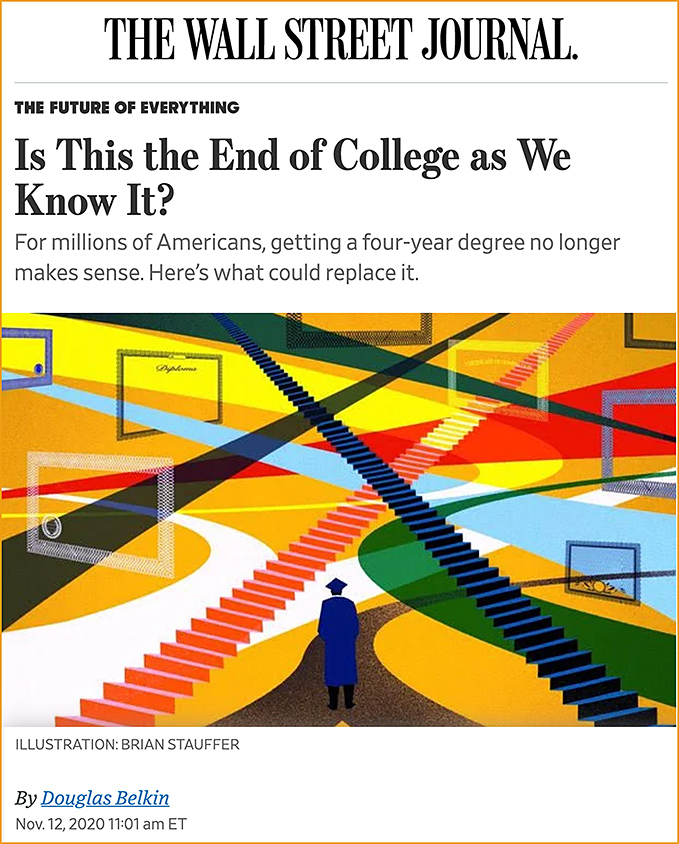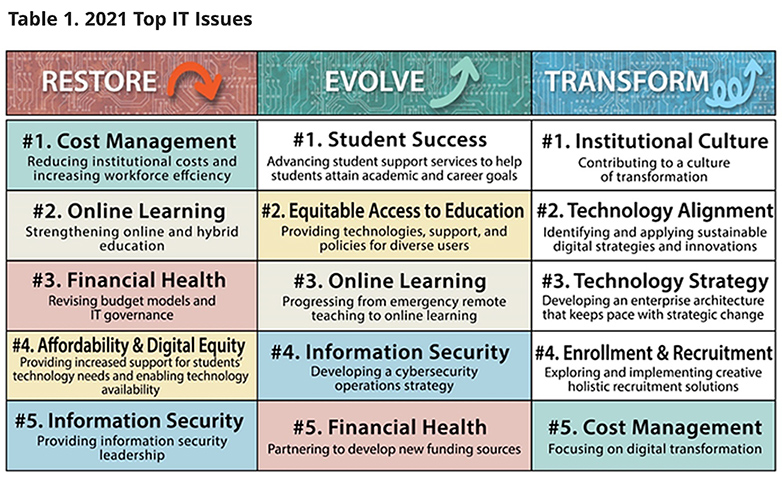Americans aren’t turning their backs on education; they are reconsidering how to obtain it.
Is This the End of College as We Know It? — from wsj.com by Douglas Belkin
For millions of Americans, getting a four-year degree no longer makes sense. Here’s what could replace it.
Excerpt:
For traditional college students, the American postsecondary education system frequently means frontloading a lifetime’s worth of formal education and going into debt to do it. That is no longer working for millions of people, and the failure is clearing the way for alternatives: Faster, cheaper, specialized credentials closely aligned with the labor market and updated incrementally over a longer period, education experts say. These new credentials aren’t limited to traditional colleges and universities. Private industry has already begun to play a larger role in shaping what is taught and who is paying for it.
For more than a century, a four-year college degree was a blue-chip credential and a steppingstone to the American dream. For many millennials and now Gen Z, it has become an albatross around their necks.
What has embittered so many millennials is that they played by the rules and still got stuck. Ben Puckett, a 30-year-old pastor in Michigan, earned a B.S. in physical therapy before a Master’s degree in divinity. He is $95,000 in debt.
“I went to college because I was told by parents, friends, teachers and counselors that it was the only way to ensure a good future,” Mr. Puckett says. “At 18 years old, how was I supposed to defy what my school, parents, society, friends were saying about going to college?”














